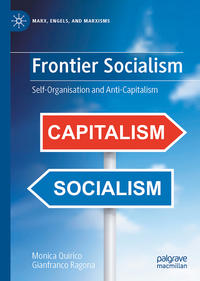
Considering the history of workers' and socialist movements in Europe, Frontier Socialism focuses on unconventional forms of anti-capitalist thought, particularly by examining several militant-intellectuals whose legacy is of particular interest for those aiming for a radical critique of capitalism. Following on the work of Michael Löwy, Quirico & Ragona identify relationships of “elective affinity” between figures who might appear different and dissimilar, at least at first glance: the German Anarchist Gustav Landauer, the Bolshevik Alexandra Kollontai, the German communist Paul Mattick, the Italian Socialist Raniero Panzieri, the Greek-born French euro-communist Nikos Poulantzas, the German-born Swedish Social Democrat Rudolf Meidner, and the French social scientist Alain Bihr as well as two historical struggle experiences, the Spanish Republic and the Italian revolutionary group “Lotta continua”. Frontier Socialism then analyzes these thinkers' and experiences’ respective paths to socialism based on and achieved through self-organization and self-government, not to build a new tradition but to suggest a path forward for both research and political activism.